On my birthday, the U.S. Supreme Court gave the president the powers of a king, granting the president full immunity for “official acts.”
“Orders the Navy’s Seal Team 6 to assassinate a political rival? Immune,” Justice Sotomayor wrote in her dissent. “Organizes a military coup to hold onto power? Immune.”
I didn’t know this at first because I was in the wilderness with my son, away from civilization and cell service, just the way I wanted it.
We were supposed to go to Cowee Meadow, and I knew that the trail wasn’t marked. Once we were out there, we would be out of reception. But taking the wrong trail was better than not trying at all.
From the get-go, it was pretty clear we were going the wrong way. It was too buggy, too dark. We weren’t getting to any “meadow full of flowers.”
But the trail was full of drama and tension, so we continued into Narnia. Witnessing the play of shadows, we lept over logs and broken-down bridges—could they hold our weight?
We followed breadcrumbs: the arch of a tree beckoning Come, more story lies this way. The mysterious wolf moss swaying from its boughs. What was around the bend? Pay attention to how the light changes.
Hiking through a rainforest can teach us so much about writing craft, among other things.
I didn’t mention conflict! The protruding tree roots that wanted to trip up our feet. Scattershot bridges missing planks, resembling the teeth of Alaskan old-timers.
How does our main character respond to the conflict? Does she focus on the roots that trip her feet up and booby-trapped bridges? Does she turn around? Or does she persist and send love to her psoas muscles?
Growing up, I loved hearing my parents’ stories about living through revolutions in the 1960s and 1970s. They witnessed all the good stuff: Martin Luther King and the fight for desegregation, César Chávez and the struggle for better treatment for farm workers, the Stonewall riot and demand for LGBTQIA rights, and women burning their bras.
Hearing those stories, I thought perhaps I had been born in the wrong decade. To have been born in that era to be a part of such meaningful, extraordinary change. As a highly sensitive empath unsure of my place, allying with such meaningful movements would have finally imbued my life with purpose.
Now that the news cycle is permanently set to winter weather advisory, thanks to years of political upheaval, Capitol Insurrections, pandemics, two wars, inflation, climate crisis, worldwide return to dictatorships, and the U.S. president being granted full immunity for “official acts,” I be like:
Then I listened to this podcast on Life Kit called “What to say to kids when the news is scary.” It reminded me of Mr. Rogers’ mom who said, “Always look for the helpers.”
That got me thinking. How do I read the news?
How we read and respond says a lot about our character. Do we assign good guys/bad guys? Do we vilify “the other”? Do we protest? Do we buy ammo or toilet paper? Do we share poetry about hope and videos of our babies? Do we clean our homes furiously because that is all we can control now? Guilty!
While reading about Russia invading Ukraine, I was struck by the part where President Biden mentioned that twenty-seven countries had united in their response to support Ukraine and punish Russia. Years later, several countries came out to support Palestine in the ongoing conflict. Thousands of students put their safety and college degrees on the line to demand divestment from Israel.
When our town of Juneau fell under massive snow, ice, and rainstorms last month, our town banded together, across political and cultural divisions, to help neighbors shovel their roofs, gravel their driveways, and stop the floods in their basements.
When 9/11 happened, I was living in Costa Rica. “An attack on America is an attack on all of us,” the Costa Ricans told me. I will always remember 9/11 as a time when the rest of the world had our backs.
Hope is the last part of our protagonist’s story. Hope is found scattered throughout the trail: the shooting star flowers and light reflecting through the broad fan of devil's club leaves. The nurse logs, dead fodder giving birth to new life. The redhead boy whose vitality gives our protagonist energy to continue.
“Look for the helpers,” Mr. Rogers’ mom said.
Speaking of helpers, these poems helped me. Maybe they will help you, too.
And this one by Joy Harjo.
One day, we’ll look back on these scary days and tell our children, “Ah yes, we bore witness to that.” We did xyz in response.
We get to be a part of history and the change to make this world better. We will pick up our feet over the roots. Maybe we’ll turn around, realizing we’ve gone down the wrong trail.
How are you coping right now? What have you found to help?
With love and solidarity,
Summer
If you liked this article, please smash the heart button, share, and subscribe!
To support my work, why not consider a paid subscription? For $4/mo. you get access to all posts, comments, and discussion threads. I am so grateful to my paid subscribers who allow me to keep doing this work!
Thank you so much to these new paid subscribers and your generous words!
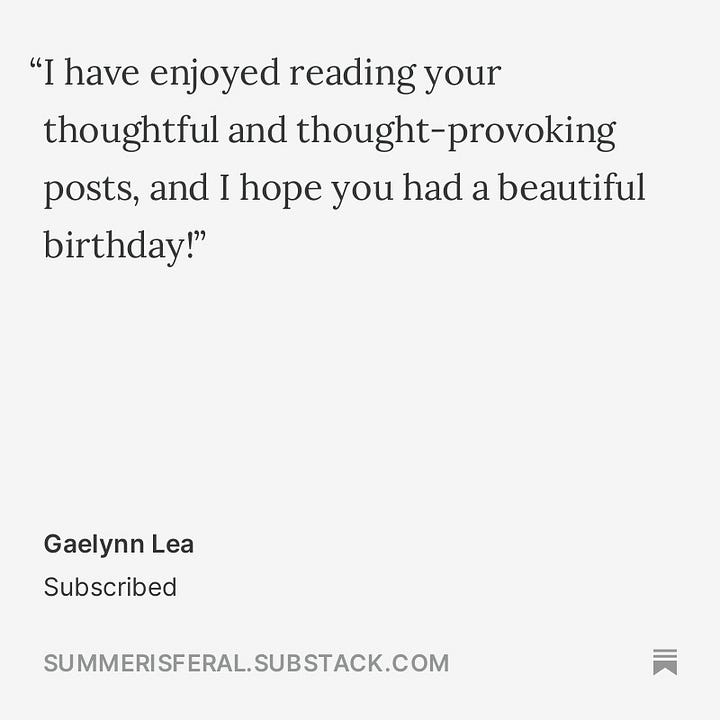





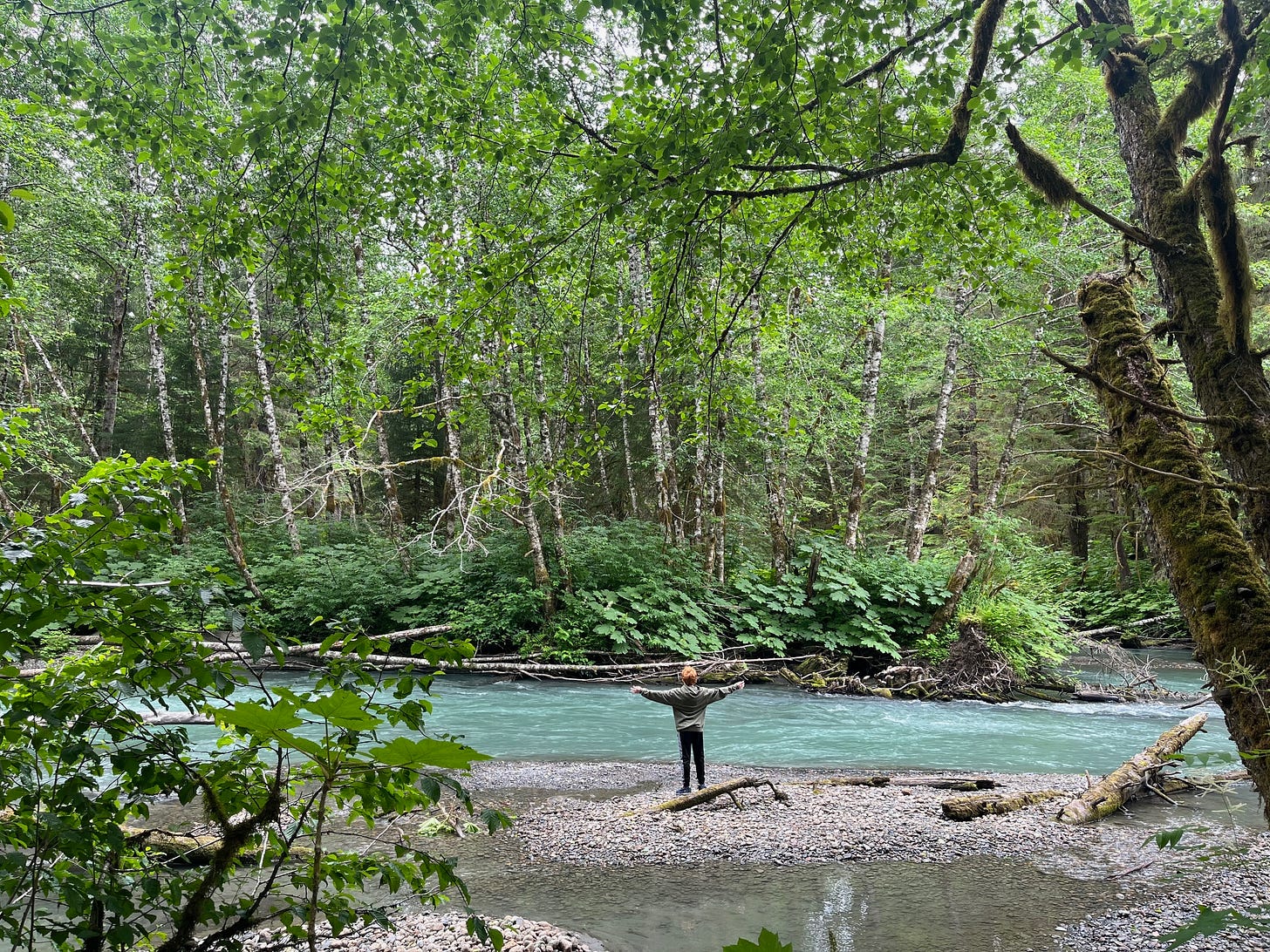
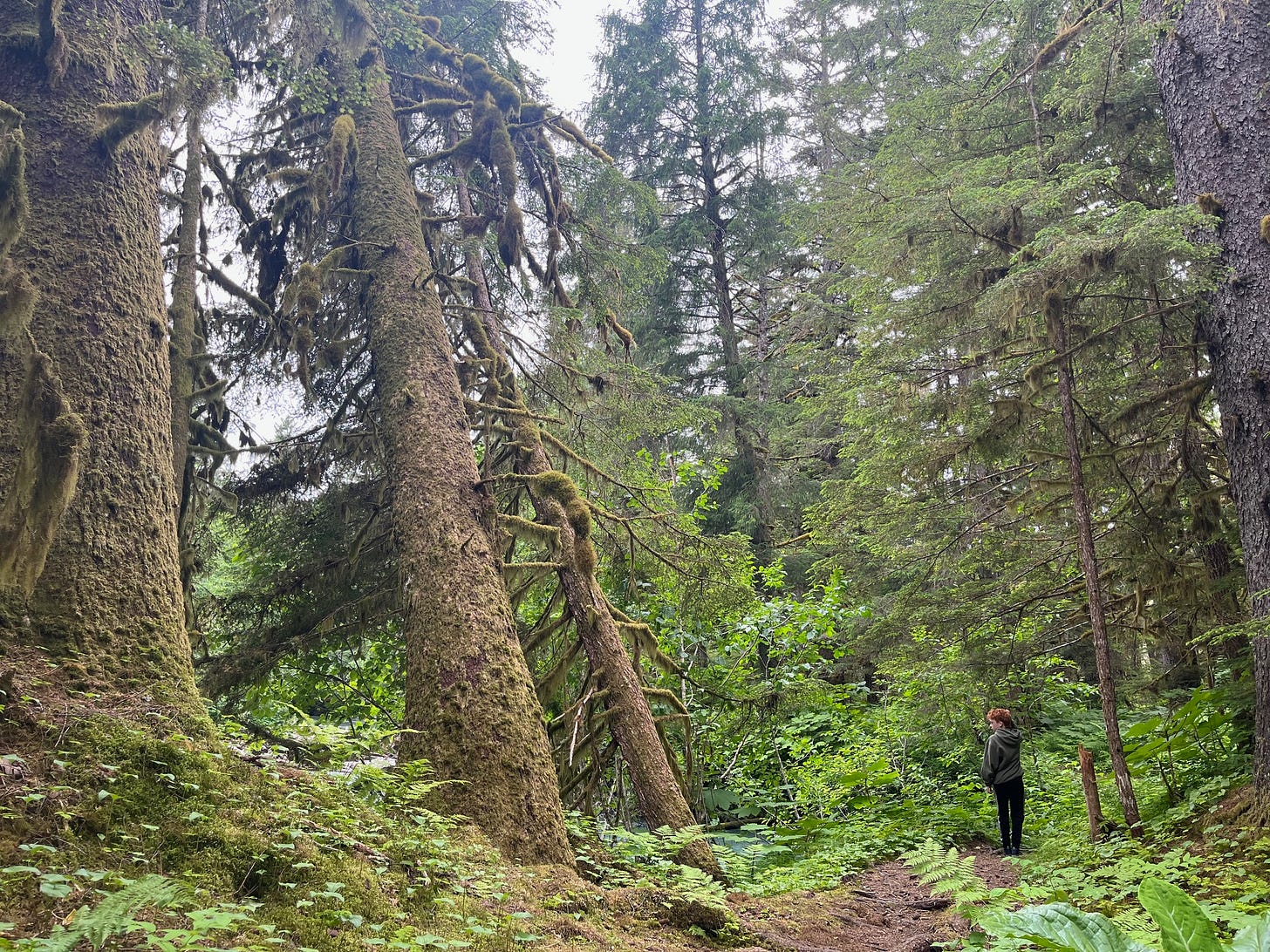
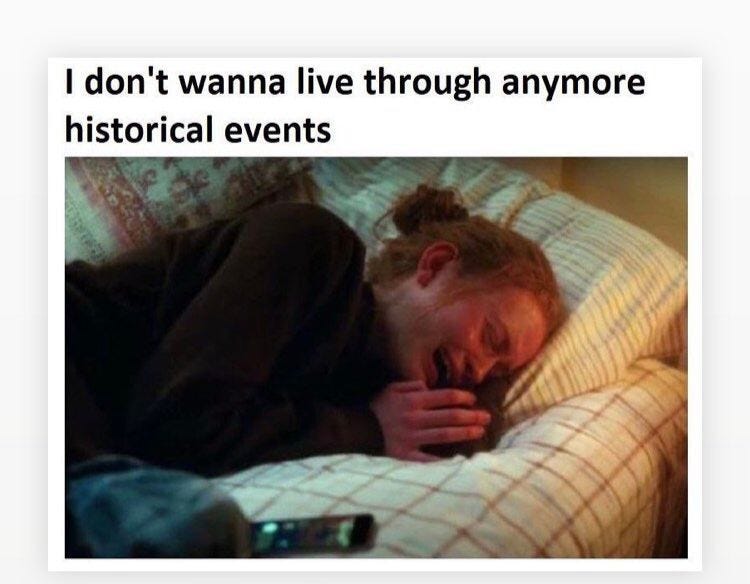
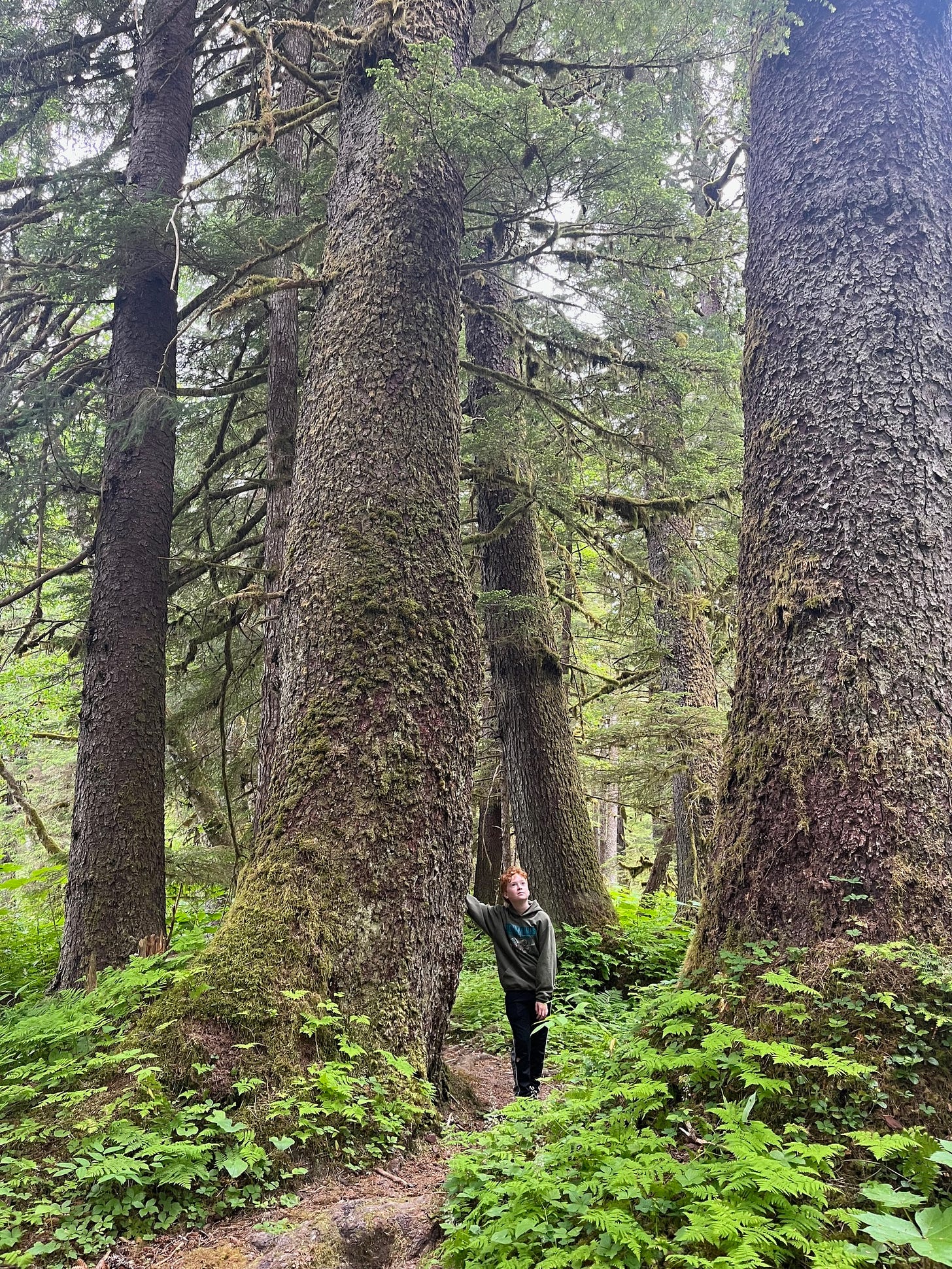
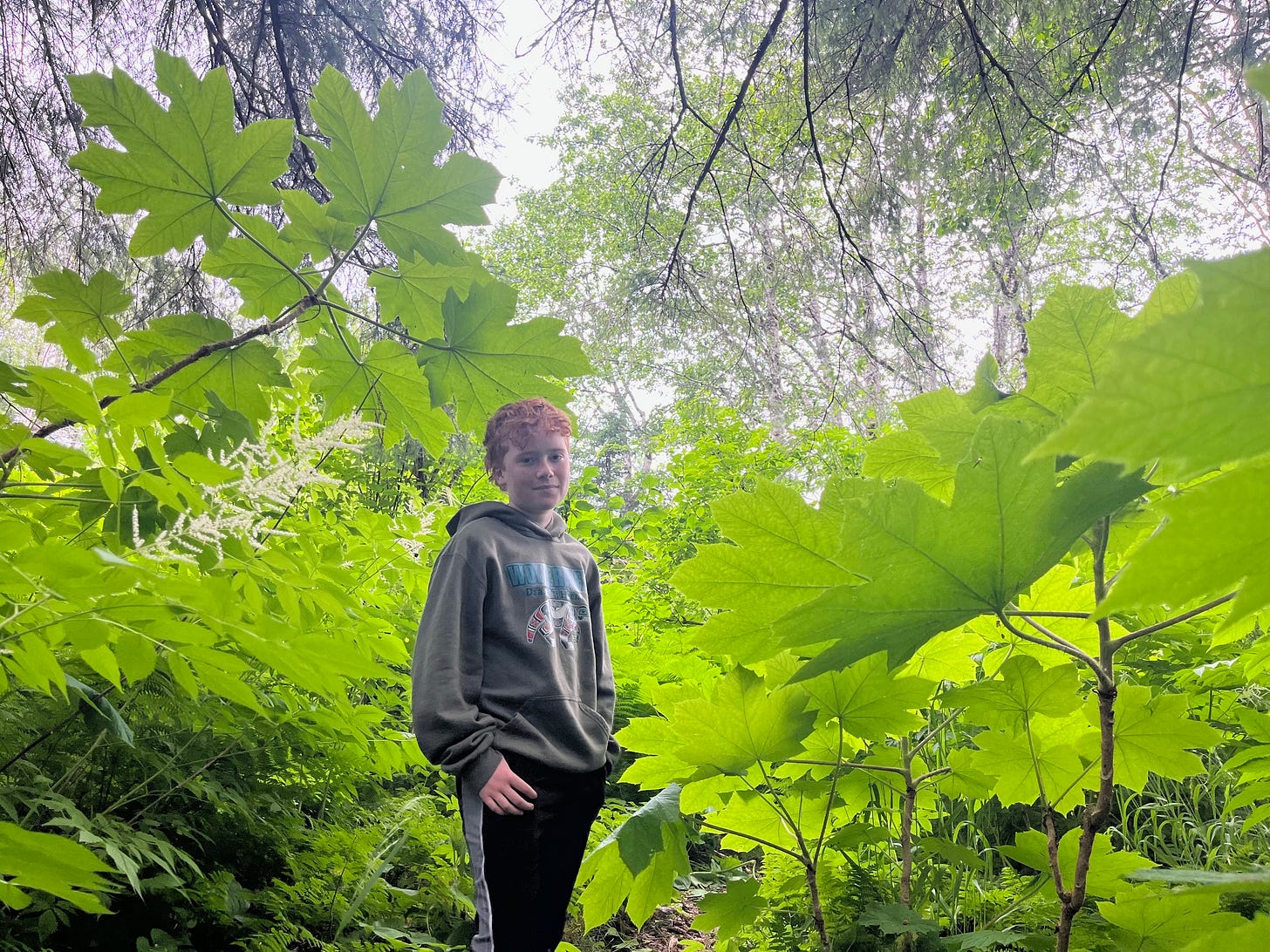
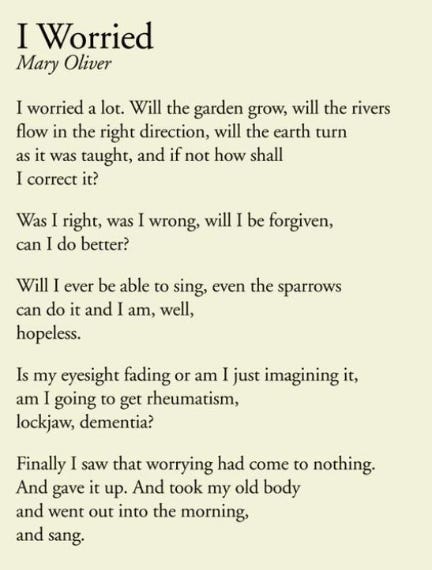

One must remember that many people of the past lived in different governments and thrived. There was great art amongst people who lived under kings and queens. There have been wonderful books and stories coming from Communist regimes or tzars.
It may be the end of the world as we know it. But it's always the end of the world as we know it and though we might not feel fine, we can look to the plants that spring up from the cracks in concrete. Life pushes through even when we throw rocks in it's way. We can do the same.
I think helping each other cope is really important right now. That helps me, along with lots of other things.